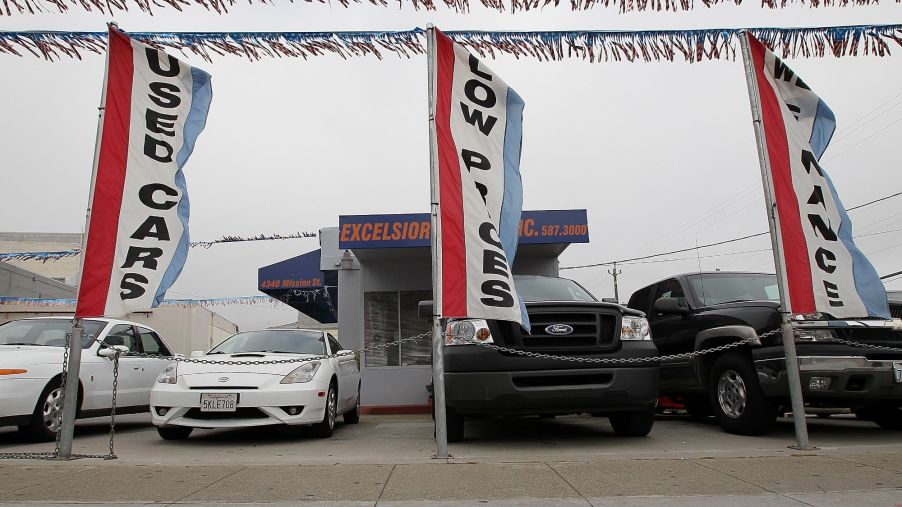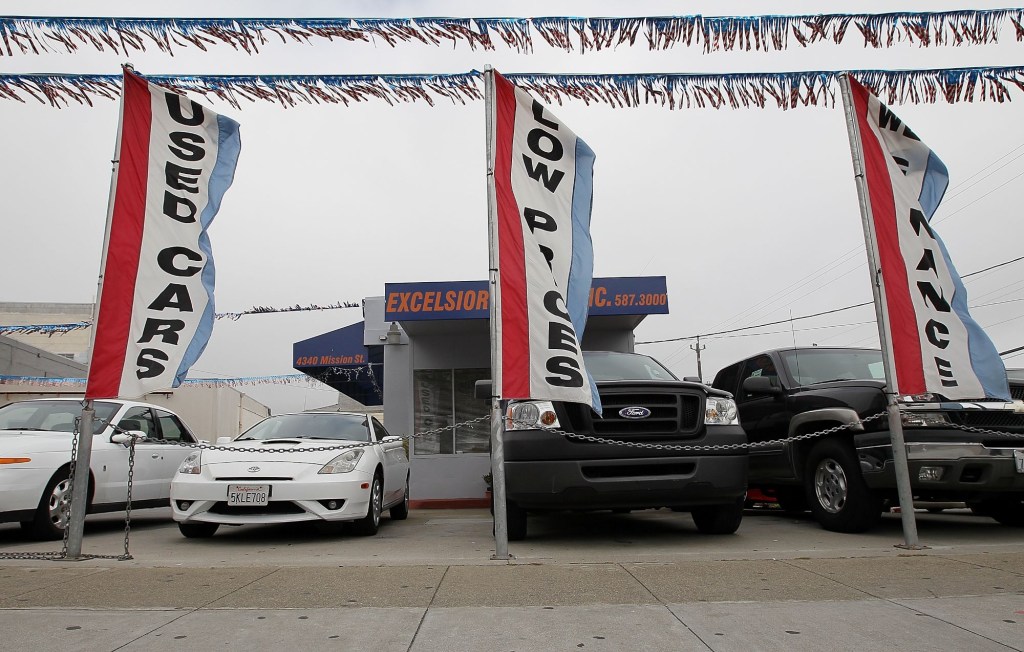
Can You Sue a Car Dealership For Lying?
Driving off the lot in a new or used car is supposed to be a joyous occasion. But if you end up with a vehicle that doesn’t live up to its advertisement or dealer description, your joy ride can quickly end. You might find that the car dealership was untruthful in its claims about the car or dealings. While there is a difference between not being thrilled with car sales and being a victim of a car dealership lying to you, there are instances when you can take legal action and sue a car dealership.

When you can sue a car dealership for lying
According to FindLaw, there are two basic categories of misrepresentation that you can sue a car dealership for. These include failure to disclose material factors or blatant misrepresentation. Legally, you are protected by consumer law and can decide to file a lawsuit whether the lying was regarding a new or used vehicle.
There are some commonly known misrepresentation situations, such as odometer tampering, which is changing a car’s mileage to reflect lower miles. “Bait and switch” is when a dealership advertises one car and then when you arrive, they say that car isn’t available and try to upsell you to a more expensive one.
Other issues occur when a dealership doesn’t disclose vehicle history, like past accidents or damage. There may also be instances where the car is said to come with certain features when, in the end, it doesn’t have those features.
Dealerships may also unlawfully mess with the pricing or financing of vehicles. Examples include inflating vehicle prices or claiming an issue with the financing being completed and asking you to bring the vehicle back. This is called yo-yo financing.
Instances of fraud against a car dealership
According to FindLaw, when a car dealership outright lies by committing fraud, you can also sue for common law fraud. The Consumer Law Group states that you have to prove certain facts to file suit.
Basically, you have to show that the car dealership left out or misrepresented material facts about the vehicle, and you suffered a financial loss as a result. This essentially means you had to pay for repairs or other expenses related to the issue. Additionally, you need to prove that you wouldn’t have bought the car had you known about those material facts.
Even if you bought a car with an “as-is” contract, you still might have grounds to sue for fraud, according to Nolo. Even in those as-is cases, the vehicle would still be expected to function overall, so if it breaks down on the way home from the dealership, you have grounds for a claim.
How common is it for a car dealership to get sued over lying and what are the payouts?
It’s always a good idea to be vigilant and aware when looking at a vehicle at a car dealership, especially because dealerships are always going to try to protect themselves first, Nolo reminds.
While many people have beef with a dealership, taking legal action occurs for instances of fraud or misrepresentation, whether the car dealership was lying on purpose or not.
Typically, the payouts if your claim is successful include things like canceling your car loan obligation, refunding any car payments you’ve already made, or being reimbursed for repairs you’ve paid for. Sometimes you may have your legal or court fees paid for as well.


